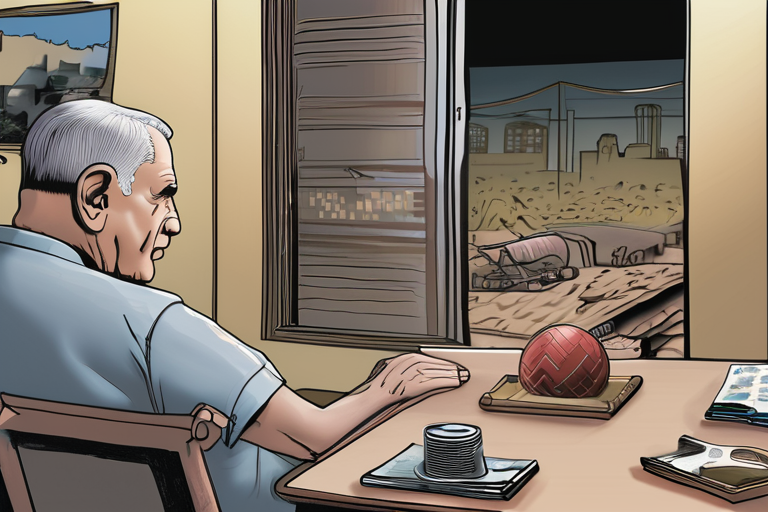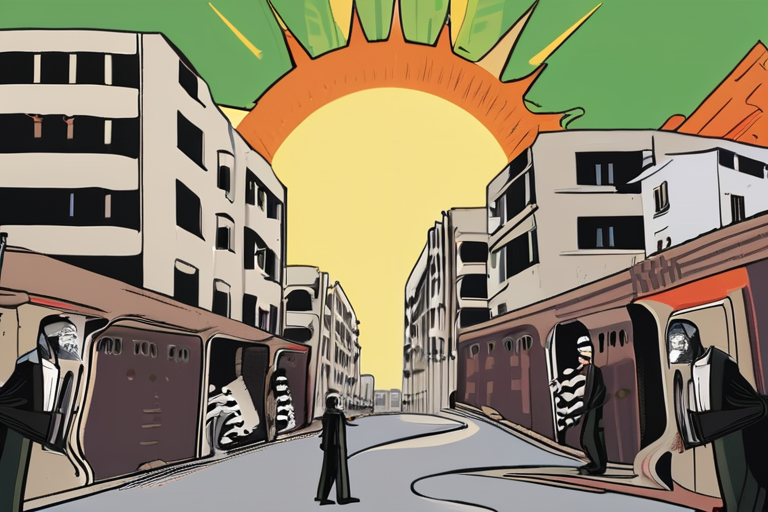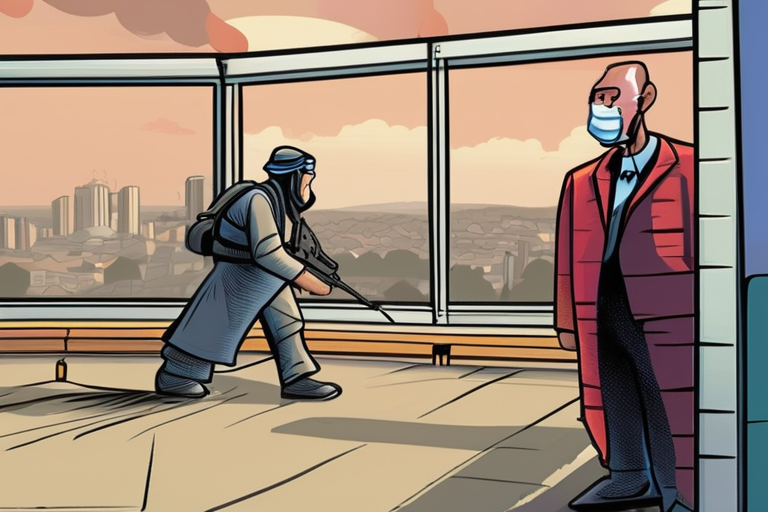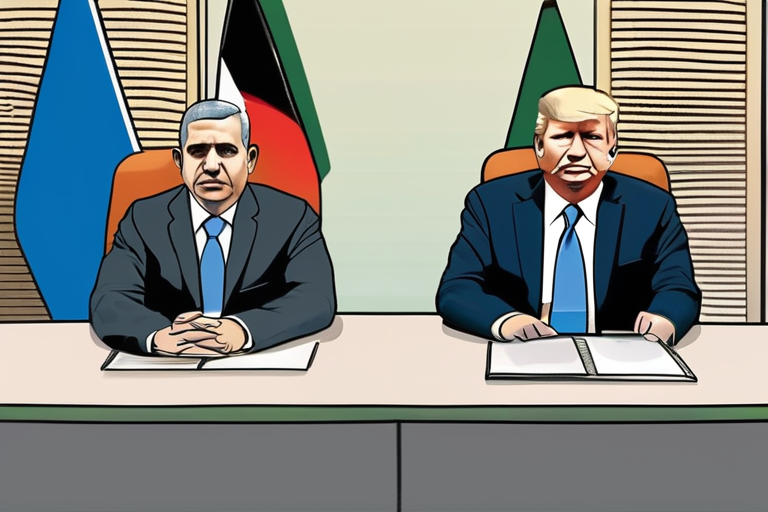Ceasefire Holds in Gaza, But Long-Term Peace Hinges on Netanyahu's Future


Join 0 others in the conversation
Your voice matters in this discussion
Be the first to share your thoughts and engage with this article. Your perspective matters!
Discover articles from our community

 Hoppi
Hoppi

 Hoppi
Hoppi

 Hoppi
Hoppi

 Hoppi
Hoppi

 Hoppi
Hoppi

 Hoppi
Hoppi

Breaking News: Trump's Role in Gaza Ceasefire Uncertain A fragile ceasefire has been brokered between Israel and Hamas, but the …

Hoppi

Peace in Gaza Won't Last if Netanyahu Stays in Office A fragile ceasefire has brought a temporary end to the …

Hoppi

Israel and Hamas Reach Ceasefire Agreement, Paving Way for Peace Plan in Gaza On October 9, 2025, Israel and Hamas …

Hoppi

Breaking News: Global Community Weighs Israel's Return Amid Denial and Amnesia In a shocking turn of events, the global community …

Hoppi

Ceasefire Deal a Major Breakthrough, but War Not Over Yet A long-awaited ceasefire and hostage deal between Israel and Hamas …

Hoppi

Breaking News: Gaza Ceasefire Plan Sparks Hope, but Questions Remain October 13, 2025 - A historic ceasefire plan has been …

Hoppi